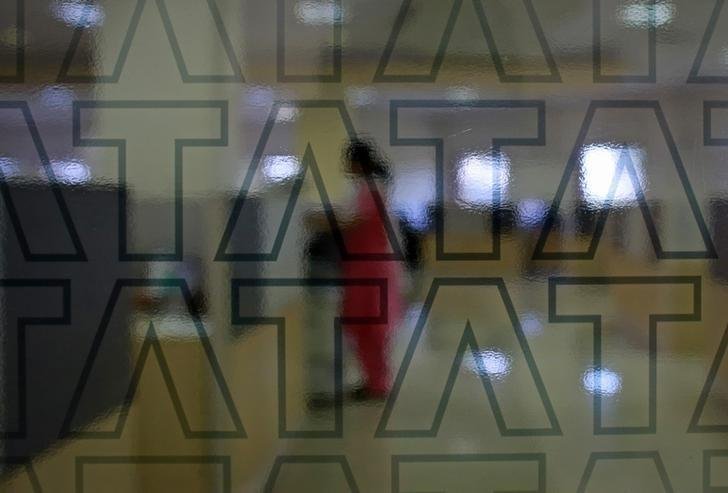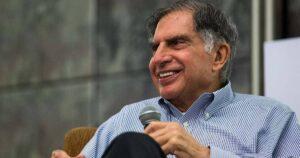New Delhi: United States might not be a friendly destination for Indian techies anymore, since the country aims to ‘serve, first and foremost, the US national interest’ under the leadership of President Donald Trump.
A bill proposing overhauling of US’s high-skilled worker visa policy for non-Americans was tabled before US Congress on Tuesday. If the bill passes, the law will send home thousands of Indians working in specialized sectors. The bill intends change in H-1B visa policy of which Indian workers are the highest beneficiary. H-1B visa allows U.S. employers to temporarily employ foreign workers in specialty occupation.
The bill seeks to revise the criteria, selection process and minimum salary required for long-term H-1B visa holders from foreign countries. The H-1B is a temporary non-immigrant visa in the United States under the Immigration and Nationality Act.
If the bill translates into a law, the minimum salary requirement for an employee intending for a visa will double from $60,000 to $130,000. This precisely means only a highly-paid IT official will be allowed to work in US, thereby axing the low-income level jobs. The US government admits 65,000 workers and 20,000 graduate students under H-1B visas every year.
At present the visas are approved on the basis of a lottery system after employers file requests to the US government to fly engineers and IT managers from India to provide services to their clients.
There’s no specific time period when and if the bill becomes a law.

How do Indians in US view the bill?
“If you ask me will the new bill affect immigrant workers, I will say yes. But how, who will face the consequences and what will be the new guidelines, nobody knows. It’s very frustrating. The thing is nobody knows what’s going to happen,” a 28-year-old Indian electrical engineer working at an MNC in Texas told ScoopWhoop News over phone.
The engineer, who talked on the condition that his name and that of his company not be disclosed, also said the discussions around the bill have been “common” among his Indian friends after Trump’s sweeping order banning Muslims from seven countries.
“But we can only talk. We can’t really push the conversation since we are not US citizens. We are kind of helpless in that sense,” the engineer, who completed his Masters in US and got his H-1B visa in 2013, said.

According to US Homeland Security Department, 70% of the H-1B visas approved by US in 2014 went to Indians. That was five percent more than the previous year.
“It’s a big concern for all of us. People have liabilities here. Many have taken car and home loans. If the high salary requirement becomes a law, then masses will fly back to India as the companies can’t afford to pay such high salaries,” a senior IT consultant with Tech Mahindra in California told ScoopWhoop News.

The senior consultant, who’s working in US under H-1B visa, feared that the process for extension of visas might not “be easy like earlier.”
“The entire equation of the required skilled workforce will change. US has shortage of IT-skilled workers,” he said.
A worry for Indian tech giants
United States is the biggest market for India’s $150 billion information technology sector. Every year, tech giants like Tata Consultancy Services, Infosys and Wipro submit thousands of H-1B visa applications for its employees.
Presumably, the impact of the intended legislation has already started whispers of fear across the Indian IT industry. Even the Indian government has shared its concern with India’s Ministry of External Affairs expressing its concerns to the US government.
National Association of Software and Services Companies (NASSCOM), a trade association of Indian Information Technology and Business Process Outsourcing industry, has already started engagements with US administrations and legislators both directly and through Government of India.

“The focus[of the engagements] would be on highlighting the value contribution of India’s IT sector as a ‘net creator’ of jobs in the US where it has helped American businesses by providing high-skilled IT solutions in order to innovate, open new markets, and expand operations – creating thousands of jobs for Americans,” NASSCOM said in a statement.
NASSCOM’s President R. Chandrashekhar said “since the rationale for the administration and the legislative wing is to protect job opportunities for Americans, our strong suggestion is that they should carefully calibrate the conditions keeping in mind the skill shortage in the US…Raising wage levels for dependent companies alone will defeat the basic objective as non-dependent companies can continue to bring in skilled workers at lower wage levels, thereby nullifying the objective of protecting job opportunities for American nationals.”
Not only IT-professionals
Indians working in other specialized fields like industrial engineering, mechanical and biomedical have more reasons to feel distressed.
“Most of the non-IT professionals are paid less. If the minimum salary requirement materializes, it will upset the entire business model. Many Indians pursue Masters and PhDs in non-IT fields and rely on H-1B visa program for employment. They will be hit most,” said Priya (name changed) who came to US in 2009 for her PhD in biomedical engineering.

“The companies are also becoming skeptical as well keeping in view the political uncertainty. Several companies have started discouraging job applications from visa holders or visa applicants,” Priya, who’s living in US on an Optional Practical Training (OPT) visa for students, told ScoopWhoop News.
The intended legislation has put the prospects of Priya’s application for H-1B visa in jeopardy.
“Each visa is meant to ascertain a a particular role. And it’s not easy to shift between different kind of visas,” Priya, who’s planning to apply for her H-1B visa this year, added.
“I went through all the pain, not knowing that the future would still be so uncertain.”

















